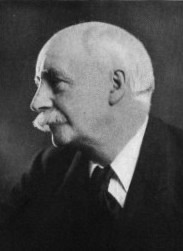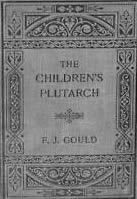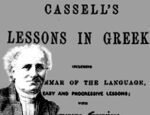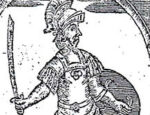Description
 Be uplifted by the underlying egalitarian politics of the children’s versions of Plutarch’s Lives by the radical and secularist Fredrick James Gould. First published in 1906, The Children’s Plutarch is told in simple language, and emphasizes the charitable, egalitarian and moral dimensions of the ancient heroes.
Be uplifted by the underlying egalitarian politics of the children’s versions of Plutarch’s Lives by the radical and secularist Fredrick James Gould. First published in 1906, The Children’s Plutarch is told in simple language, and emphasizes the charitable, egalitarian and moral dimensions of the ancient heroes.
Gould’s parents were Evangelical Christians of lower middle-class identity but extremely poor: his father was an unsuccessful opera-chorus singer. He was educated until the age of 15, and became a teacher and Sunday School teacher. But he lost his Christian faith and subsequently worked in the East End of London in board schools, teaching some of the poorest children in Britain. He then moved to Leicester where he founded the Secular Society in 1908 and wrote many works advocating a moral, rather than religious education.
 His Plutarch for children was illustrated by the socialist Walter Crane. Either he or Gould chose to illustrate visually the most politically as well as ethically telling incidents in the Lives. From the spectacular Life of Pompey, with its wars, triumphs and colourful death scenes, they chose the moment when Pompey was kind to ‘Tidius Sextius, a lame old man, who came limping into the camp. Many of the soldiers laughed at this crippled warrior. They thought he could be of little use in the war. But Pompey had a generous spirit. He rose up and ran to meet him, and showed Sextius much courtesy. He considered that a man who would give up the comfort of his home, and come to the wars for the sake of a friend, deserved honor and respect.’
His Plutarch for children was illustrated by the socialist Walter Crane. Either he or Gould chose to illustrate visually the most politically as well as ethically telling incidents in the Lives. From the spectacular Life of Pompey, with its wars, triumphs and colourful death scenes, they chose the moment when Pompey was kind to ‘Tidius Sextius, a lame old man, who came limping into the camp. Many of the soldiers laughed at this crippled warrior. They thought he could be of little use in the war. But Pompey had a generous spirit. He rose up and ran to meet him, and showed Sextius much courtesy. He considered that a man who would give up the comfort of his home, and come to the wars for the sake of a friend, deserved honor and respect.’







